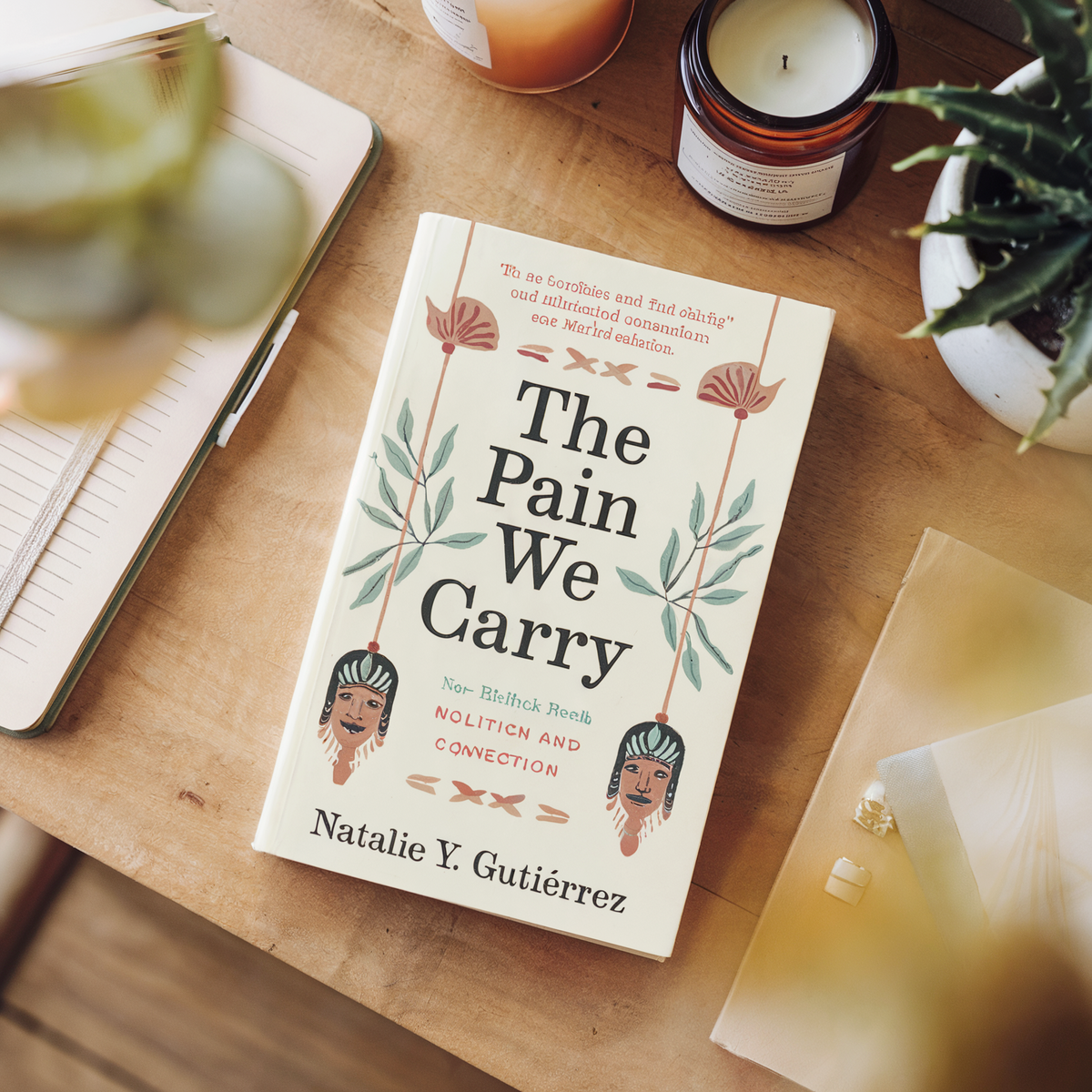We’re excited to dive into the key takeaways from today’s book—it’s full of great ideas. Jump straight into today’s breakdown by clicking here to listen.
If you're enjoying our podcast, consider supporting Lit Snippets by purchasing The Pain We Carry on Amazon, a thought-provoking read that might just help you decide what to read next.
---
🌿 | Main Ideas in a Flash
- The podcast explores the concept of "legacy burdens," explaining how cultural, family, and personal histories can manifest as invisible baggage that affects our present lives.
- The episode discusses Gutierrez's four-step empowerment approach, focusing on healing trauma through body regulation, self-compassion, ancestral strength, and intentional living.
- Talking about the Internal Family Systems (IFS) approach, the hosts shed light on viewing ourselves as an inner family of parts, each with its intentions and the power to protect us when understood.
---
In "The Pain We Carry," Natalie Y. Gutiérrez presents a compelling examination of how racial trauma and systemic oppression impact the mental and physical health of BIPOC individuals. She skillfully explores the concept of legacy burdens, which are the cultural, familial, and personal struggles passed down through generations, often in an unseen manner that shapes one's experiences and perceptions today. By breaking these down, Gutierrez helps readers recognize that trauma is not isolated to personal experiences but is deeply connected to historical and systemic factors.
Gutierrez emphasizes the role of the nervous system in reacting to trauma, highlighting how chronic stress can trap individuals in cycles of fight, flight, or freeze responses. Her book offers a profound look at self-regulation methods meant to soothe these stress responses, such as deep breathing and body scanning, which are practical yet powerful techniques for healing.
|| "It's like carrying the weight of your ancestors' struggles, too."
The discussion of Internal Family Systems (IFS) within the book provides an insightful framework for understanding the mind's complexity. Gutiérrez suggests that acknowledging our "inner family" of parts can build self-compassion and healing, approaching each internal part with understanding rather than elimination. This mindset allows for more profound insights into how different facets of our personality protect us, albeit sometimes in unhelpful ways.
The powerful concept of ancestral strength is woven throughout Gutierrez's narrative, illustrating how connecting to the resilience of our forebears can offer guidance, strength, and a renewed sense of who we are. This approach helps individuals live with intention, emphasizing that while the system may feel oppressive, there are choices and ways to reclaim power by aligning actions with personal values and ancestral wisdom.
---
This podcast is created for entertainment purposes and is generated, so it may include inaccuracies and spoilers. Please listen discretionarily. As an Amazon Associate, purchasing books through our podcast links supports Lit Snippets, and we thank you for your support.


